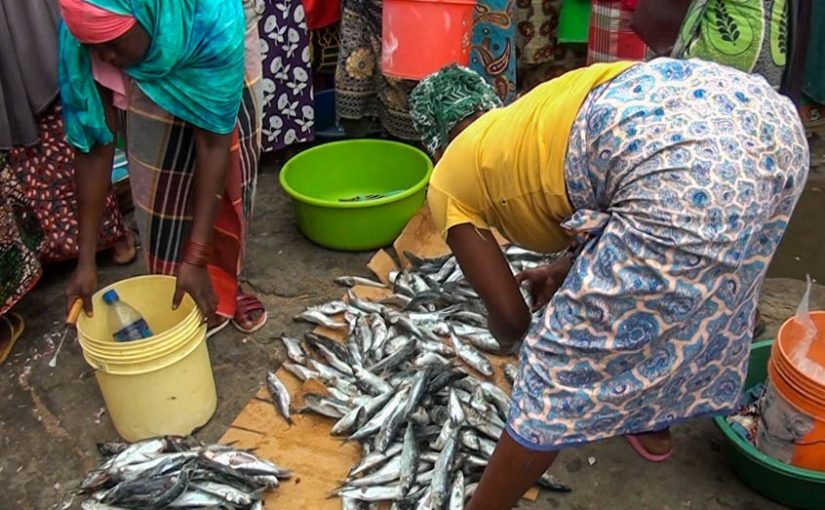Mozambique: Judges dismissed for corruption - AIM report
Mozambique: Horse mackerel and women’s livelihood in Nampula city – Ikweli

Image: Ikweli
Women in the city of Nampula, in northern Mozambique, are increasingly concerned about their economic empowerment, and are embracing various ways of earning money.
One of these is the sale of fried fish, especially horse mackerel, which, in the early hours of the day, sees women heading to the various points of sale in the municipality in search of fresh produce.
Women in the business make only a small amount over and above the purchase price of the fish itself, but point out that they are at least able to meet basic family needs such as food, clothing and learning materials for school-going offspring.
Janete Caetano, who lives in Namicopo in Nampula, sells fried fish at Namicopo market, while her daughter takes ready-to-eat merchandise to Carrupeia market. This doubles sales, and the next day, Janete goes back to the fishmongers for new stock.
A businesswoman of five years’ standing, Janete says that she has earned a significant amount towards needs which include her children’s school fees and food for the home. Even so, there are times when she has to resort to loans from colleagues to keep going.
Likewise, on Avenida do Trabalho, we find Virgília Lone who, in addition to buying and selling fresh fish, also sells the dried manioc flour used in the recipe for frying the fish later sold in formal and informal markets and in places where alcoholic beverages – sometimes home-made – are sold and consumed.
Virgilia has been working in this line of business for about eight years, and says she earns only a little, but it is enough to meet the needs of her children and herself.
“I have to be here on the street from 6:00 a.m., when people buy the fish. I have to be close to the fishmongers, where those looking for manioc flour are. But some fish I keep to one side, and when I run out of flour, I take the fish and return home for another part of the business,” she explains. It’s been a challenge, she adds, but she spares no effort when it comes to taking care of her children and supporting her family, not least because her husband makes only a little, doing odd jobs.
Men are not excluded from the business, either, and compete on an equal footing with women. Some of them help their mothers who can’t get up early or suffer the long queues, as a way of contributing to helping the family.
Another no less important feature is the solidarity of the buyers, who each contribute on the spot to acquire a certain amount of fish before distributing it equally among themselves without argument before taking their share and heading off, a scenario seen every morning except Sunday.
By Emeraldo Boquisse












Leave a Reply
Be the First to Comment!
You must be logged in to post a comment.
You must be logged in to post a comment.